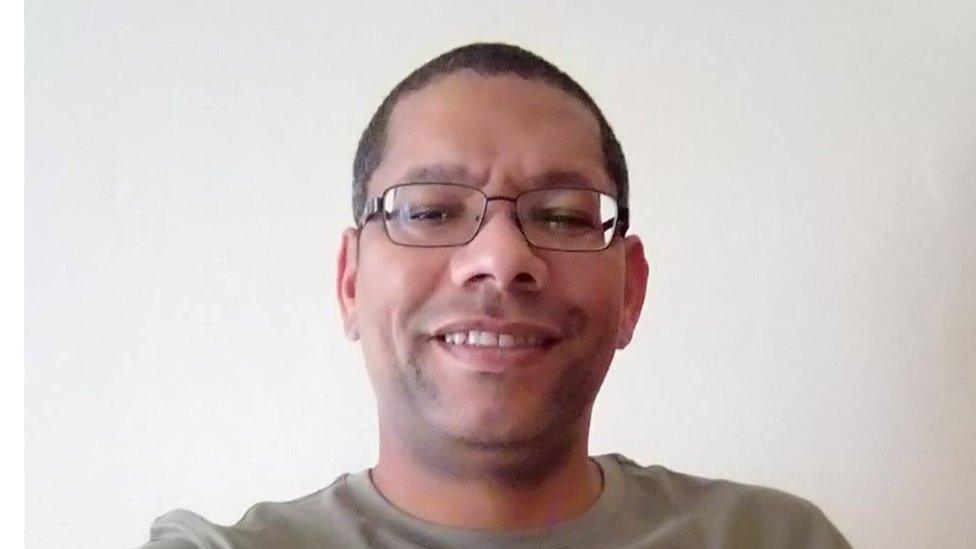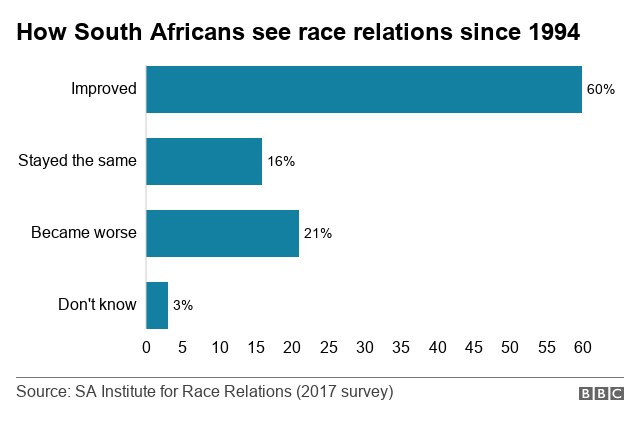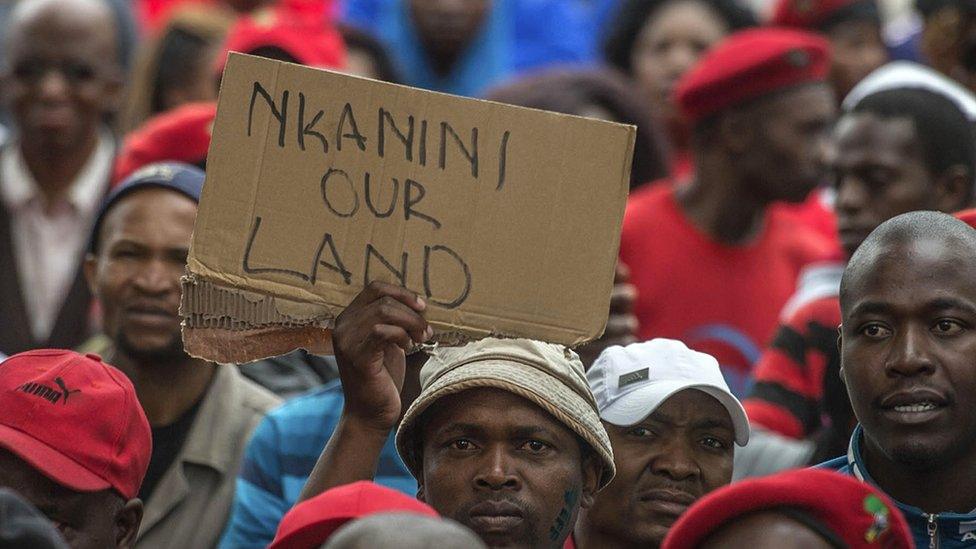Glen Snyman: South African accused of fraud for saying he's 'African'
- Published

Glen Snyman says he regards himself "first and foremost" as a South African
A South African teacher has been summoned to a disciplinary hearing, accused of fraud, for identifying as "African" in a job application.
Glen Snyman is "coloured" - as people of mixed race have been known since the country was under white-minority rule.
He is the founder of campaign group People Against Race Classification.
He opposes the use of race categories: "black", "coloured", "Indian" and "white" on official documentation, including job-application forms.
These are used to monitor attempts to give extra opportunities to those who faced discrimination under apartheid.
Since 2010 Mr Snyman has been campaigning against the use of the race categories, saying that he regards himself "first and foremost" as a South African.
According to local news site TimesLive the primary school teacher identified as "African" while applying for a headteacher job in 2017. , externalIt says he didn't get the job.
The news site reports that it has seen the charge sheet from education authorities in the Western Cape accusing Mr Snyman of fraud.
"You committed a common law offence, to wit fraud, by stating on your CV when applying for the principal post at Fezekile Secondary School that you are an African male, whereas in truth your records indicate that you are a coloured male and by doing so gain an advantage for purposes of being shortlisted," the charge said.
Mr Snyman has not commented.
Any employee can change their personnel record, Western Cape provincial education department spokesperson Bronagh Hammond told TimesLive.
But it's unclear how race issues would be handled.

In its simplest form, Mr Snyman is accused of trying to benefit from the system unfairly. Why? Well, racial classifications still matter in South Africa 26 years after the end of white-minority rule.
The new policies ushered in with the birth of democracy were aimed at reversing some of the many injustices of the apartheid regime - injustices whose severity were largely based on people's race.
Simply, the further you were from looking white the worse it got.
If you consider a ladder, black people or so called Africans were right at the bottom of the ladder. Coloured (or mixed-race) people and Indian people were placed higher on the race hierarchy under apartheid. This does not mean they were not discriminated against - but rather were preferred to Africans.

In present-day South Africa, some have said transformation has been slow and the sharing of opportunities even slower.
And so many institutions wanting to address inequality are paying more attention to who they hire - meaning the colour of their skin. They say this is not aimed at overlooking qualifications but simply at making sure that those people are not left out as has been the practice in the past.
When applying for a job this can mean stating your race and even gender for certain posts, especially government jobs.
But racial policies are not without controversy - some minorities in South Africa have described them as "reverse racism". But in a country where economic mobility is still skewed along racial lines, these classifications, many say, help to even the playing field.
Mr Snyman's case has however raised questions about how far people are allowed to choose their identity, how they self-identify, and what room there is - or isn't - in a country where race has been used as a weapon of oppression for centuries. It is a big question.

What was apartheid?

Introduced in 1948 by the Afrikaner-led National Party government
Black people regarded as inferior
No vote for black people in national election
Races segregated in all aspects of life
Prevented black people from owning land in much of South Africa
Reserved most skilled jobs for white people
Scrapped in 1994 with the election of Nelson Mandela as first black president

More on race relations in South Africa:
Firi Lekhetha and Bernadette Hall remain symbols of the "rainbow nation"

- Published23 August 2018

- Published30 May 2018
